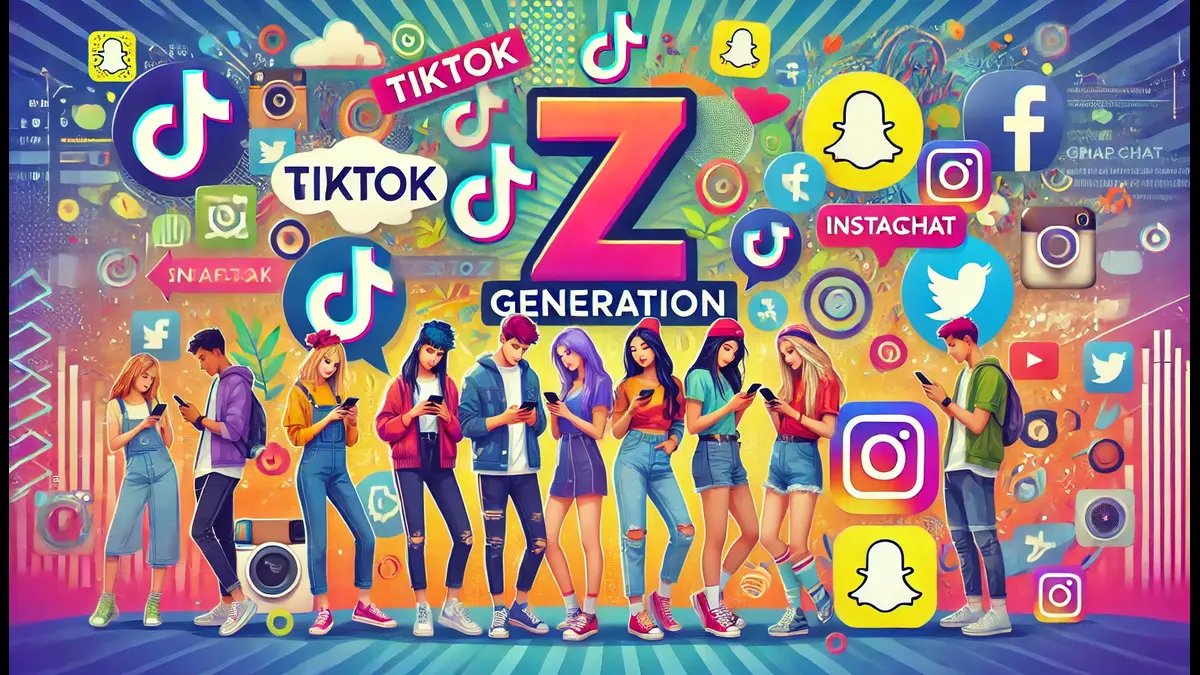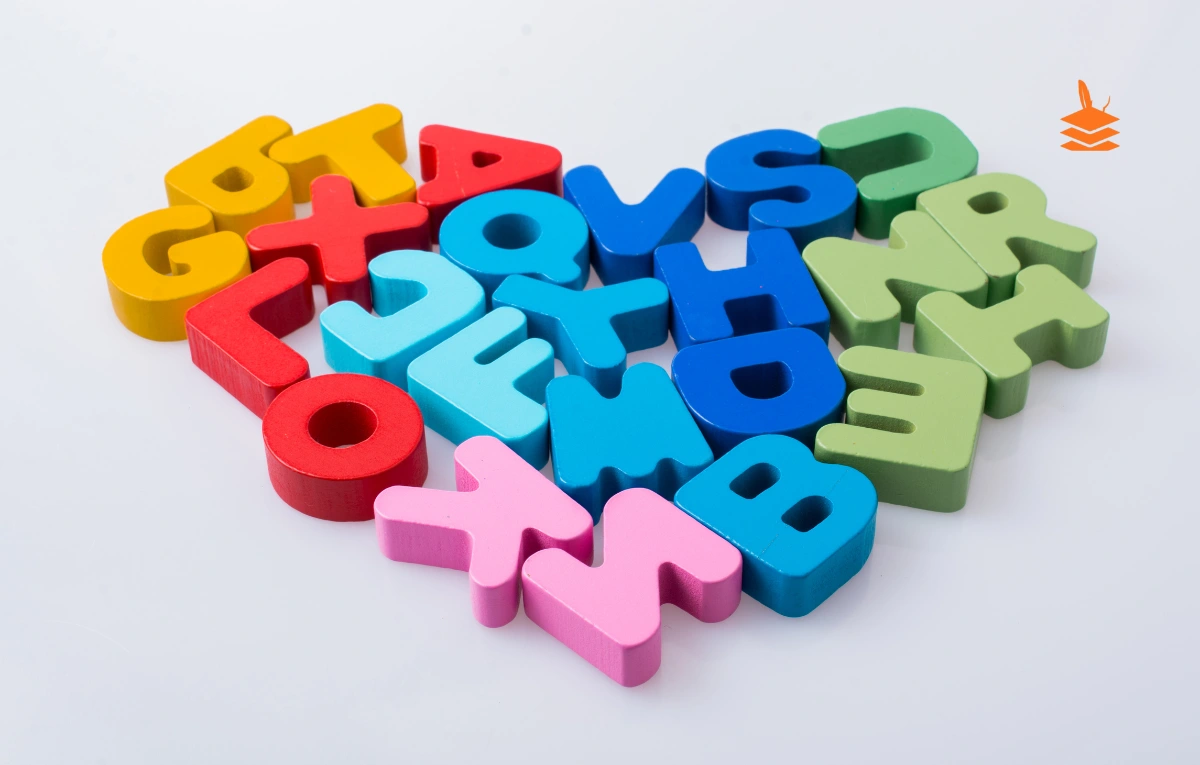Gen Z slang takes you into a world entirely of vibrant and changing, exciting phrases with birth years ranging from the mid-1990s to early 2010s. These phrases are more than just trends because they show the culture and its values, and they have created a unique way of speaking.

Furthermore, their way of speaking is shaped by their experiences and the rapid growth of social media. If you want to understand their slang better, you should know their birth years for a better understanding.
Key Takeaways
- To begin with, Gen Z slang has a unique cultural language.
- Secondly, the birth years of Gen Z impact their speaking styles.
- Social media is mainly responsible for trending phrases
- Understanding Gen Z slang fosters effective youth communication.
- Lastly, knowing this popular Gen Z slang can overcome the communication gap among generations.
What Are the Birth Years of Gen Z
The birth range between the mid-1990s and early 2010s, and this generation was the first to grow up with the use of the internet and advanced tech.
Furthermore, the cultural influences on Gen Z are wide-ranging. It includes social media trends and global environments. They have unique views and slang because they have been exposed to many cultures and have developed unique points of view.

| Gen Z Birth Years | Key Characteristics | Cultural Influences |
| The mid-1990s to Early 2010s | Digital Natives, Diverse Perspectives | Social Media, Global Awareness |
| 1995 – 2010 | Trendsetters, Innovative Thinkers | Multicultural Interactions, Activism |
What is Gen Z Slang?
Gen Z slang is a lively mix of words and phrases used by today’s youth. It is all about quick, informal communication with digital tech.
These terms in Gen Z slang often get shortened or changed, and social media plays a big role in spreading these terms quickly among this age group.

Top Gen Z Slangs You Should Know
Gen Z folks use these words in their daily chats, making their special language. Terms like lit, vibe, and no cap have their meanings. They add flavor to conversations, depending on the situation.
Commonly Used Slang in Daily Conversations
- Gen Z loves saying lit when something’s exciting.
- A vibe captures a mood or feeling.
- No cap means they’re being totally honest.
- Bet is an incredible way to say yes or agree.
- Tea is when you want to know about the gossip or the latest news around your circle.
- Boujee means high-class, fancy, or luxurious
- GOAT means greatest of all time
These words are flexible and fit into many situations. They’re key to modern talk.
Example Sentences Using Gen Z Slang
Using Gen Z slang examples makes chats more fun and relatable.
Here are some examples:
- “The trip to the hill was lit!”
- “I am vibing with the new song.”
- “No cap, I will finish the work on time.”
- “Bet, I’ll go to the Museum with you tomorrow!”
- “What’s the tea?” I have returned after two weeks
- “The hotel was so boujee, everyone had their butler.”
- “Have you seen Beyoncé’s new music video? I must say she is the GOAT of Pop Music.”

How Gen Z Slang Differs from Previous Generations
Gen Z’s slang is different from Millennials’ as language changes with each generation, having its unique traits. This change comes from the culture of each time.
Additionally, millennials used slang that showed their digital lives. However, Gen Z has slang that’s more about being inclusive and standing up for what’s right.

Gen Z slang speaks of grand social causes and being inclusive to all. It’s regarding shifting the way we perceive things and uniting people. Millennials, however, employed slang for enjoyment and to display their online existence.
| Generation | Characteristics of Slang | Examples |
| Millennials | Humorous, Irony-driven | Lit, Lowkey, Bae |
| Gen Z | Inclusive, Activism-oriented | Bet, Flex, Finesse |
The Impact of Social Media on Gen Z Slang
Social media plays a big role in how Gen Z communicates. Platforms like TikTok, Twitter, and Instagram spread new words fast. This quick sharing leads to language trends popping up and disappearing fast.
Interestingly, in Gen Z insta is commonly used for communication. Also, Rinsta refers to the real account, and Finsta is used to say a fake Insta ID where they usually post content that is personal, unfiltered, or funny content for close friends.

Popular Platforms Influencing Language
Every platform has its way of shaping the language. These platforms bring out trendy phrases that become integral for communication.
- TikTok brings out catchy phrases through viral challenges.
- X (formerly known as Twitter) makes short and sharp sayings.
- Instagram uses pictures and captions to share feelings and thoughts.
Every platform has its unique format for sharing content, and Gen Z has used these social platforms since childhood. If you want to boost your knowledge of this slang, social media can be a great source of enriching your vocabulary.
The Role of Memes and Viral Trends
Memes are key in making Gen Z slang fun and relatable. They add humor and make new words popular. Phrases linked to memes can become big hits, showing their power.
Meme culture brings people together. It creates a community where everyone uses and shares these funny sayings. For instance, during cricket tournaments, we always get to random people getting viral overnight, becoming influencers, and Gen Z slang goes the same way.
Regional Variations of Gen Z Slang in Pakistan
The slang of Pakistan’s Gen Z is a colorful mix due to the country’s rich culture. Punjabi, Sindhi, and Pashto dialects add to the local slang. Urdu and English blend, making phrases unique to each area.
| Region | Common Slang Expressions | Influencing Language |
| Karachi | Kya scene hai? | English, Urdu |
| Lahore | Tere naal chalda | Punjabi, Urdu |
| Peshawar | Pashto ba Zuma Ayala de | Pashto, Urdu |
BONUS: Regional Variations of Gen Z Slang in the US and UK
American Gen Z slang comes from their pop culture, social media, and AAVE (African American Vernacular English).
In big US cities like New York or Los Angeles, trends change quickly, often spreading through TikTok and rap culture.
- Phrases like “That’s cap” (that’s a lie)
- “It’s giving” (describes a vibe) is commonly used. Meanwhile, rural areas maintain a mix of modern internet slang with regional dialects.
UK Gen Z slang blends British humor, roadman slang, and multicultural influences.
In the UK, Gen Z slang varies from city to city, like London, Manchester, and Glasgow. London’s slang is influenced by roadman culture, blending Jamaican Patois with British phrases.
Northern UK cities have distinct slang rooted in working-class communities, while Scotland and Wales incorporate local dialects.
| Region | Common Slang Expressions | Influencing Language |
| New York, US | “That’s the cap!” (That’s a lie), “No Kizzy” (No joke) | AAVE, Internet Slang |
| Los Angeles, US | “It’s giving…” (Describes a vibe), “Slaps” (Really good) | Social Media, Pop Culture |
| Texas, US | “Y’all wildin’” (You guys are crazy), “Bet” (Okay, agreed) | Southern English, AAVE |
| London, UK | “Peng” (Attractive), “Bare” (A lot), “Peak” (Unfortunate) | Roadman Slang, Patois |
| Manchester, UK | “Sound” (Okay, good), “Buzzin’” (Excited), “Gaff” (House/party) | Northern Dialects, British Slang |
| Glasgow, Scotland | “Pure baltic” (Very cold), “Scran” (Food), “Mad wae it” (Drunk) | Scottish Dialect, Internet Slang |
How to Use Gen Z Slang Appropriately
Learning Gen Z slang is all about learning the vocabulary and when to apply it. It makes communication more enjoyable and engaging. When you use slang correctly, you become more accessible to Gen Z.
It is all about knowing when to use slang. It’s all right to be informal with close friends, but not at the workplace. Using the wrong slang can make the situation very awkward. Therefore, it’s essential to continue learning and wisely utilizing slang
1. Understanding Context and Tone
Knowing the context of the slang is important because there is slang that can not be used in formal conversation and vice versa.
Misusing slang can result in embarrassing situations. Knowing current slang assists you in communicating with Gen Z. It is a matter of knowing language shifts.
2. Avoiding Miscommunication in Conversations
You should avoid outdated terms in your communication and keep updated with the trending slang. Keeping up with slang trends helps avoid these issues. If you want a better communication flow, learn how to use the terms correctly.
Pro Tip: To speak effectively, you should learn the amazing 121 idioms that I have compiled for you that will make you speak an idiomatic language from all walks of life
Read More: 121 Idioms Examples to Use in Daily Life
Common Misconceptions About Gen Z Slang
Many people think slang myths about Gen Z slang are true. They believe it’s shallow and not important. But Gen Z slang is a creative way to communicate.
It shows the creativity and culture of a generation that expresses feelings, connects with others, and shares culture.
Generational Stereotypes
Generational Stereotypes can make us misunderstand language. Critics usually call it shallow, but this slang is a powerful way to express feelings through communication.
Gen Z slang comes from culture, internet memes, and social interactions. It’s alive and reflects the experiences of its users. Embracing Gen Z slang gives us a new view of how we communicate today.
| Misconception | Reality |
| Gen Z slang is just a phase. | It reflects ongoing cultural and social changes. |
| All slang lacks meaning. | Gen Z slang conveys deep cultural significance. |
| Only young people use slang. | Many older generations adopt and adapt slang over time. |
| The slang is purely informal. | It can be used effectively in various contexts. |
Why Learning Gen Z Slang is Important for Communication
Learning Gen Z slang is imperative to effective communication across various generations. It improves the connection and sense of belonging. Older generations can relate to and understand the sentiments and ideas of the youth if they use their language.
Employing Gen Z slang facilitates improved communication with the youth. It makes conversation friendlier and more accessible. It makes the young feel more self-assured and at ease during social interactions.
Understanding Gen Z lingo does more than educate on new vocabulary. It makes family conversations richer and more respectful, bridging the gap between generations. Strong conversations result in deeper relationships, opening doors to understanding and growth.
Moreover, for effective communication, you must learn the art of active listening. It helps you to absorb whatever you listen to. Thus, you should understand the fact that the more you are good at listening, the better you will communicate using slang. I have compiled a research-based article for you to boost your active listening skills.
Read More: Active Listening: Boost Teamwork with Effective Leadership
| Aspect | Benefits of Learning Gen Z Slang | Consequences of Ignoring It |
| Communication | Enhances clarity and mutual understanding | This leads to misunderstandings and disconnect |
| Youth Engagement | Encourages open dialogue and participation | Inhibits youth from sharing their perspectives |
| Language Learning | Broadens linguistic skills and cultural awareness | Restricts ability to relate to contemporary issues |
Summary
Finally, you have learned the most popular terms of Gen Z that you can use in your speaking. These terms evolve swiftly due to social media trends. Gen Z, having complete access to the internet and digital tech, has developed a unique way of thinking.
In this detailed article, we have discussed slang based on regions as well as countries like Pakistan, the United Kingdom, and the United States of America. Therefore, this article is for anyone who wants to learn Gen Z’s slang to speak better.
Let’s get ready for a 100-day learning challenge. Drop two slang words in the comments and join the 100-day slang challenge—learn 100 new terms in the next 100 days. Let’s do this together!
FAQ
1. What are the birth years of Gen Z?
Gen Z’s birth years are 1995-2010, and they have the internet.
2. What are the Gen Z slang and the Millennials’ slang?
Gen Z slang emphasizes inclusivity and social causes, whereas millennials rely on cultural references and jokes.
3. What is the common slang of Gen Z?
Gen Z slang comprises “lit” (fun), “vibe” (feeling), “no cap” (no lie), and “bet” (agreement).
4. Is there regional variation in Gen Z slang in Pakistan?
Yes, in countries such as Pakistan, Gen Z slang has a blend of diverse languages, such as Urdu, with regional dialects. This produces one-of-a-kind expressions that reflect cultural influences.
5. Why do I learn Gen Z slang?
Learning Gen Z slang serves to bridge the generation gap. It enables older individuals to relate more and engage in meaningful discussions with younger individuals.

Hi, I’m Usama, the passionate creator behind usamawrites.com. My mission is to help you unlock your full potential by mastering English communication and the art of copywriting. Whether you’re looking to enhance your writing skills or boost your content’s impact, I’m here to guide you every step of the way. Let’s transform your ideas into powerful words together!




I am always looking online for tips that can aid me. Thanks!
What’s Happening i am new to this, I stumbled upon this I have found It absolutely useful and it has aided me out loads. I hope to contribute & assist other users like its aided me. Great job.
Very good written story. It will be useful to anybody who utilizes it, including yours truly :). Keep doing what you are doing – looking forward to more posts.
I will keep on posting content that is informational. Thank you
It’s really a cool and useful piece of info. I am glad that you shared this helpful info with us. Please keep us informed like this. Thanks for sharing.
I’ll try to post even better. Keep learning and stay in touch
Thanks for another wonderful article. Where else could anybody get that type of info in such a perfect way of writing? I’ve a presentation next week, and I’m on the look for such info.
Thanks for your feedback. It always motivates me to keep up the good work
Perfectly indited written content, Really enjoyed reading through.
I am happy that you liked and appreciated my effort
I want forgathering utile info, this post has got me even more info! .
Utterly pent written content, Really enjoyed reading through.
You are a very clever person!